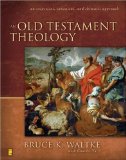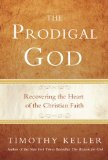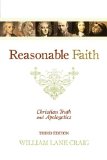Thanks again to Chris at Zondervan for a review copy of this book.
Sorry for 2 book review posts today, but I wanted to get part 1 of my review on this blog rather than referring you back to my old one. I promise I’ll never do it again (yes, I am employing the universal promise-negation tactic of crossing my fingers).

I intended to use this part of my review of Waltke’s OT Theology to review his sections on Genesis, but realized how long it would end up being. (Actually, I’m beginning to realize just how many reviews it will take to work through this book; a change of plans may be in order). So, I’ll give some thoughts on chapters 7-11, which leads us up through the story of Noah.
His thoughts on the creation narrative were helpful, arguing that Genesis 1 is in fact history, but neither “straightforward history” nor science. What is most important is what the biblical account teaches us about God as Creator. “As the Creator of the cosmos, he [God] triumphed in the past, as Creator of history he triumphs in the present, and as Creator of the new heavens and new earth, when the creation theme peaks, he will be triumphant in the future” (p203).
I found his discussion of the “us” in Gen 1:26 to be fascinating. Against the common Christian interpretation that “us” is referring to the Trinity, or even the less common “self-deliberative plural”, he takes it to refer to the “heavenly court”, that is, angels. Two points from his argument revolve around the issue of the Hebrew word elohim, which is actually in the plural form. He argues that in Genesis 3 the word is not used to refer to God, but rather heavenly or divine beings. He notes that elohim is elsewhere used as “divine beings” rather than “God” (1 Sam 28:13). Also (not to get to technical), “you will be like elohim, knowing good and evil” (3:5) uses a plural participle rather than a singular modifier (which is what’s used when elohim is referring to God rather than a plural group); the same wording occurs in 3:22. There’s more to the argument, but suffice to say that I’m intrigued by his suggestion, granting that it may have the best support in context. The big question I’d ask in response is whether it is said that the angels are also created in God’s image and is it fair to read between the lines and come up with a strong “heavenly court” concept.
I appreciate that Waltke carried the story of the Garden into Genesis 4, where we see the consequences of Adam and Eve’s sin. Here we see that the situation is worsening as they leave the garden, yet this story “assures us that I AM accompanies Adam and Eve and their family outside the garden (“I AM looked with favor on Abel and his offering,” v. 4) and superintends the giving of the seed of the Serpent and of the woman (“God has granted me another child in place of Abel,” 4:25) (p269).
Waltke follows Warren Gage in noting the parallels between Adam and the creation story and Noah and the “new creation” story. I never realized how many lexical similarities there are between the two stories; there are enough that it’s hard to argue against the intentionality of the parallels.
There are a couple relatively minor problems, as I see them, with these chapters. I was a little disappointed not to have a fuller treatment of the theology in the creation story and the flood narrative as compared to the similar stories in ancient Near Eastern literature. To be sure, he discusses these, but I feel like there’s so much more to mine in this area. When you compare the non-biblical accounts with the biblical ones, you can grasp the picture of God that the original audience would have been taught in contrast to their pagan neighbors (this is part of the role of exegesis, after all). On this, I’d recommend Victor Hamilton’s treatment in his Handbook on the Pentateuch.
On pages 273-275, Waltke discusses the popular Christian position that Satan is a fallen angel. I remain unconvinced of this (though I’m willing to be). Surprisingly, while rejecting (correctly, in my opinion) the interpretation of Isaiah 14 that says the Babylonian ruler mentioned there is actually Satan, he argues that the “King of Tyre” in Ezekiel 28 does refer to Satan. On the grounds of context and genre, I see no reason to read this chapter as anything but what it says it is: a prophecy against the King of Tyre. After all, it occurs in the middle of a collection of prophecies against various nations and evil rulers (context). And, it’s poetry- it uses metaphorical and lofty language to make a point (genre).
In all, these chapters were helpful. His exegetical treatments of the biblical writings are superb, even if space limitations leave you wanting more (of course, I could solve that problem by purchasing his Genesis Commentary. Like a good biblical theologian, Waltke tries to draw out how biblical writers use these stories and develop them. Subsequent reviews will deal with this more, for now it’ll have to suffice to say that I am finding this book a profitable read.












